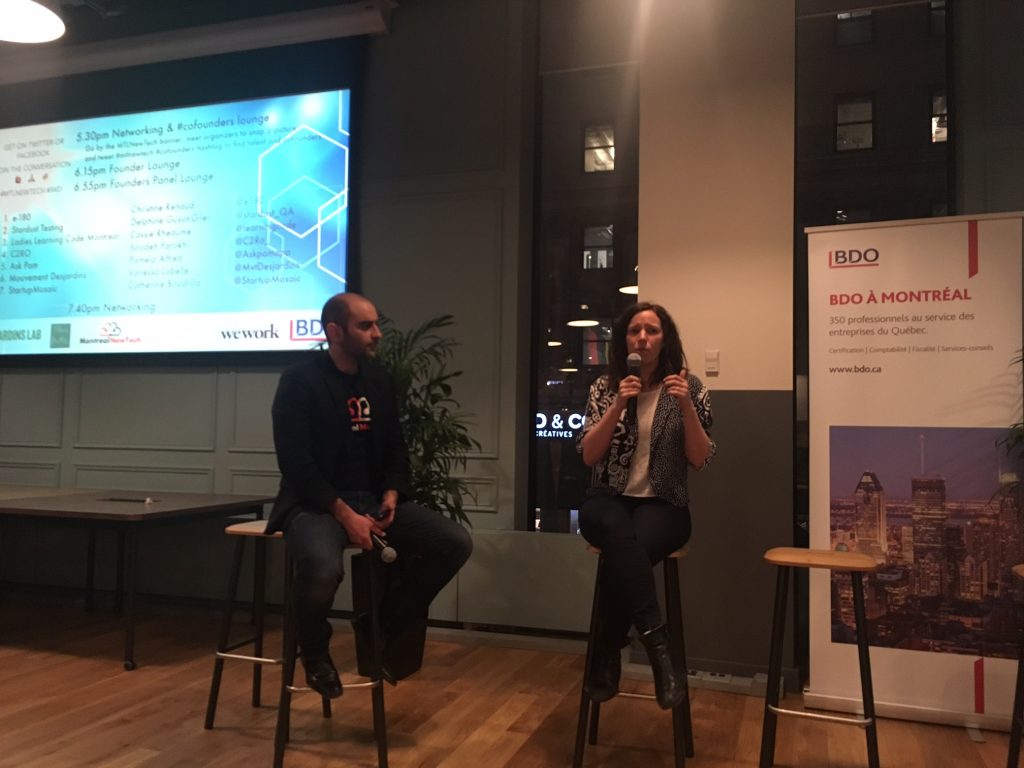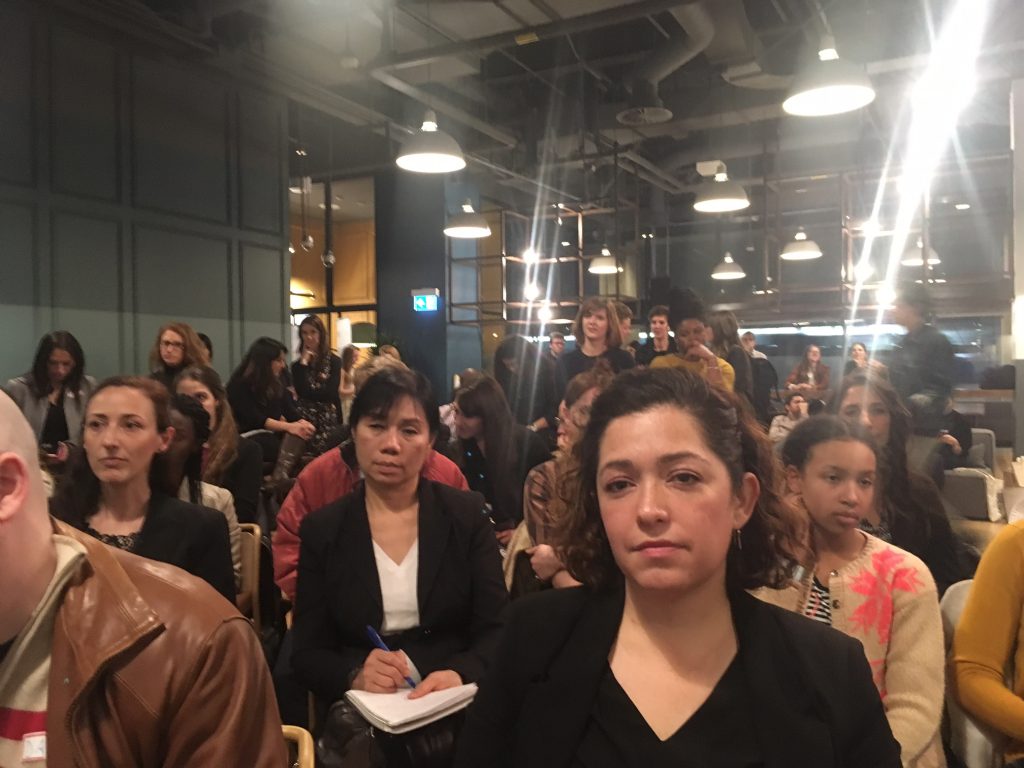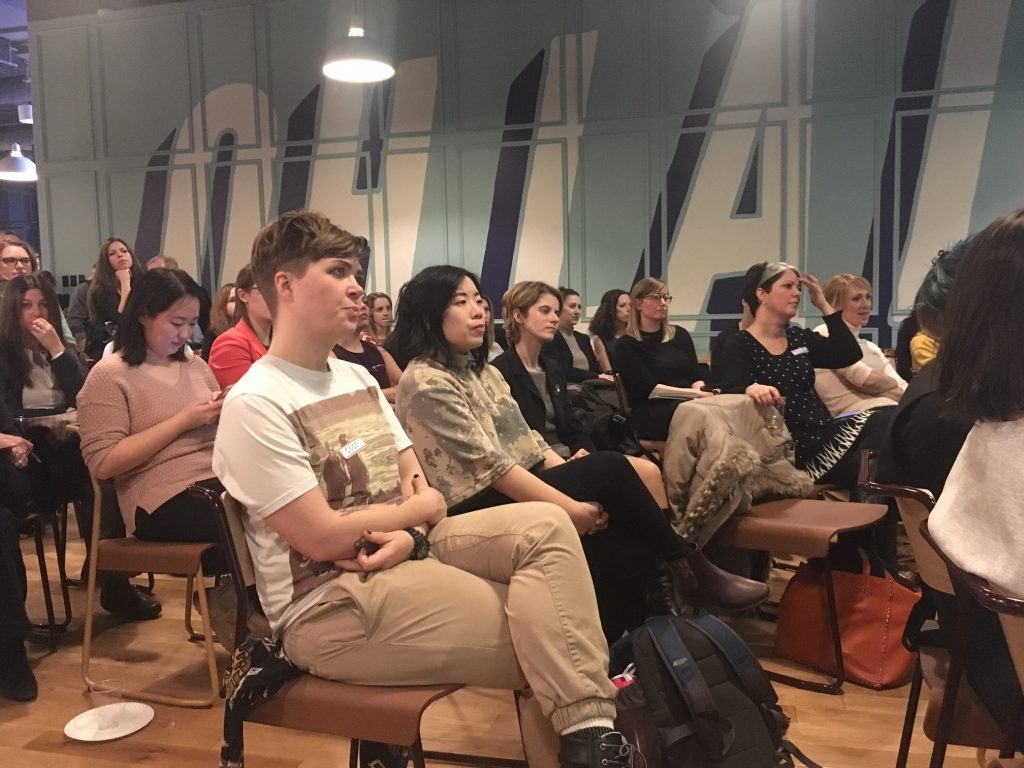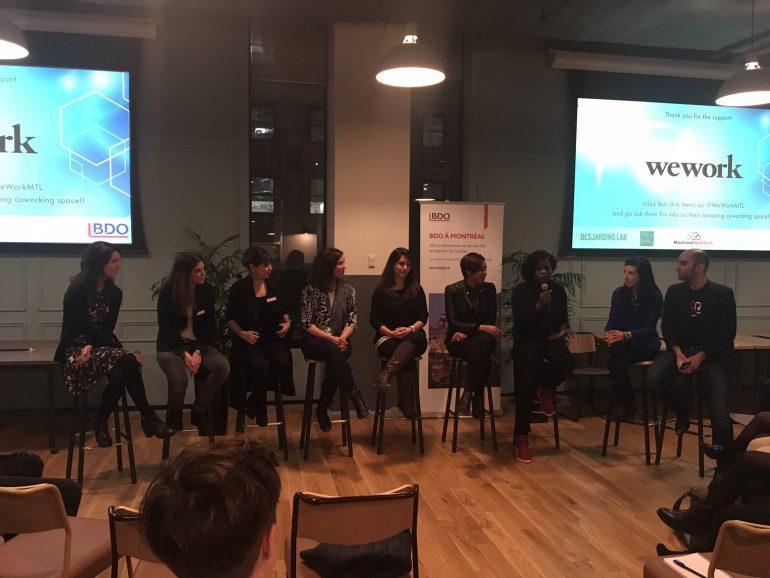Pour lire cet article en français, cliquez ici.
Founders Lounge, an MTL NewTech event series that invites founders and co-founders to share their business experience, dedicated its latest edition to #WomenInTech in order to mark International Women’s Day.
With partners like Desjardins Lab, the Desjardins Innovation Center; Cooperathon, an innovation challenge for healthcare, FinTech and Smart City; a community of women in business; and Minibulles.ca, a newsletter highlighting interesting news in Montreal, the event featured Christine Renaud, co-founder of E-180, whose talk preceded a panel discussion on issues related to women in tech.

“We started E-180 as a matchmaking site dedicated to enabling people seeking information to go and have a coffee with a stranger, to learn something or share knowledge,” said Renaud.
Their platform of what they call ‘brain dates’ first expanded through a partnership with C2 Montreal, a business conference that unites the worlds of commerce and creativity. “C2 Montréal approached us to find out if we wanted to build their B2B platform,” she continued. “We adapted our matchmaking and peer learning product to make it more suitable for a conference and event scenario.”
Having completed her studies in teaching, but keen for students to “lead their own learning process,” Renaud thinks that the most important thing when starting a business is to find what you are passionate about.
“Young entrepreneurs, they think about money and investment, but that’s not what will push you to continue in five years when times are harder.”
As for technology, it’s mostly been created as a solution to a problem. “We started with papers and boards where they wrote offers and requests; we connected people in a kind of ‘knowledge market’ and the technology came to support the change of scale of that behaviour.”
During the panel that followed, Soodeh Farokhi, co-founder and CTO of robotic software cloud platform C2RO, was very candid. “I still wonder why, when I post job offers, there are hardly any women who apply. In terms of education in Iran, we have up to 70 percent women in technology and science,” she continued.

“There is a big problem with how offers are presented in the corporate culture,” said Cassie L. Rheaume, head of the Montreal chapter of Ladies Learning Code. “It’s said that women generally do not apply to job offers unless they match between 60 percent and 100 percent of the criteria,” which is not the same for men.
While on this topic, Vanessa Labelle, who is responsible for gender equity and leadership at Desjardins Group, believes that “the first issue is self-confidence.” Renaud, who is also an assistant at Technovation, an initiative matching girls with mentors to help them identify a problem in their community and develop a mobile app to solve it, added nuance:
“It’s also a matter of welcoming diversity, and I think it’s important not to victimize women. It must be recognized that women can be strong and powerful, but that in some organizations, diversity is not well-managed in general. ”
Although it is “easier [to be a woman in technology] here than in France,” according to Stardust co-founder and CEO Delphine Guyot-Giler, she emphasized the the importance of having a female-friendly environment, for example when it comes to work-family flexibility.

The importance of female mentors was also a major point raised during the exchange, as these models help women identify and grow in the technology community.
“Male mentors will not have the same challenges as women,” said Catherine Boundjia, director of the Startup Mosaic team, an initiative that promotes diversity in the startup ecosystem in Montreal. “Having the chance to interact with women means that we are not alone and that some have succeeded in creating functional and successful businesses.”
“Once you recognize the reasons why you want more women and validate their contribution [that comes from their experience of being a woman], this is how you create environments where women feel recognized and not just there to fill a quota,” continued Renaud. And it allows technologies to be representative of the entire population.
There is also work to be done in terms of how technology is presented as a field of study. “You have to present it in a ‘sexier’ way. If I had known what I could have done with technology, I would not have been in business management,” said Pamela Alfred, co-founder of Ask-PAM, a platform that centralizes the hotel concierge services.
And it begins at an early age. “We had people who had workshops [at Technovation] and said that because they were talking with young girls, they were going to code a little kitten climbing out of a box, but the kids also want to solve problems!” said Renaud. “It is important to be aware of our own prejudices.”


